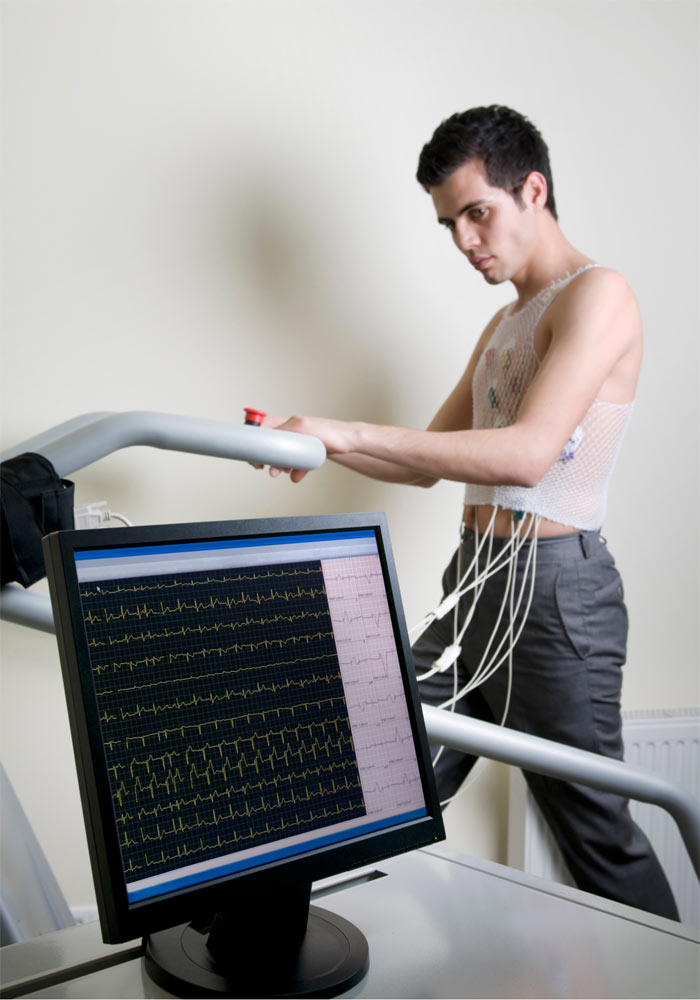STRESS-TEST

STRESS-TEST
In this examination a continuous electrocardiogram recording is conducted while the patient is gradually subjected to progressively increasing degree of physical fatigue according to a special protocol. The cardiologist observes for changes in the electrocardiogram compatible with the presence of ischemia, observes the heart rate as well as the appearance, worsening or improvement of any premature atrial or ventricular activity. Simoultaneously, the patient’s blood pressure is measured at regular intervals, while the patient is asked to report any onset of symptoms such as pain or shortness of breath. Immediately after the test (walking on a special mat or moving on a stationary bike) electrocardiographic monitoring is continued for a few minutes. The total duration of the test is approximately 15-20 minutes.
The purpose of a stress-test is to confirm (or reject) the clinical suspicion of coronary heart disease, to stage the risk of future adverse events or to monitor arrhythmological phenomena (pre-existing) during the examination. Nowadays the role of stress-test for in the diagnosis of coronary heart disease has been downgraded by the current clinical practice guidelines. Priority is given to functional tests with simultaneous echocardiographic monitoring (eg stress-echo) which feature greater diagnostic accuracy.
This test is designed to provoke increased cardiac output requirements in order to highlight abnormal conditions that do exist but may remain silent at rest. It is therefore easy to understand why it is contraindicated in the case of suspected acute event such as acute coronary heart disease or myocarditis or in situations in which the risk of complications is increased e.g. severe aortic valve stenosis. Finally, there is no indication to perform such a stress-test when resting electrocardiogram shows disturbances that do not allow diagnosis through the expected changes during physical stress.
For this examination, the patient should not have consumed a large amount of food or fluids 2-3 hours before the examination, he/she should wear appropriate shoes and clothes that will not interfere with exercise. Further, medications such as beta-blockers should usually be withheld 2-3 days before the test.
